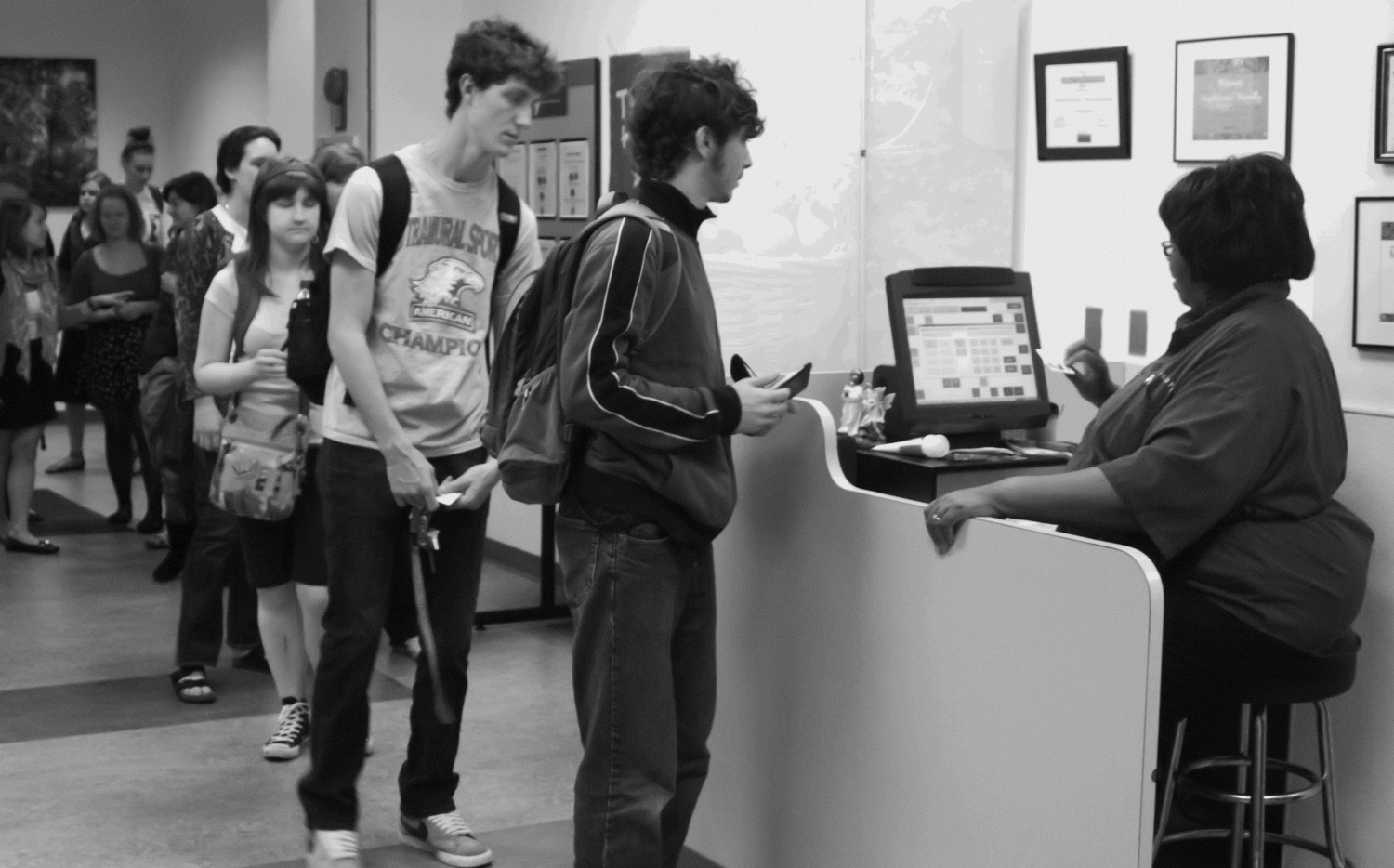Behind the Swipes: Conversations with Bon Appetit Employees
Does Bon Appétit employ ex-convicts? Workers I interviewed acknowledged that there are some with a criminal past, but temporary and full-time employees submit to a background check. The persistence of that rumor speaks to a serious divide between Bon Appétit workers and the students they serve every day.
In an attempt to bridge that divide, I spoke to three Bon Appétit workers about their jobs, ambitions and gripes.
Ana Carolina Ebanks Rodriguez
In her native Honduras, Rodriguez was a public defender for the national government. For 12 years, she defended the accused until, in 2003, gang members threatened her and her family. She fled to Miami and, fearing for her life, ultimately sought political asylum in the US. Before she started at Bon Appétit, she spent two years working as a housekeeper for a family in Potomac, MD. When she asked for a day off, she was fired.
Through a Honduran friend, Rodriguez found a job at Salsa, where she makes about $16,000 in a seven month session. With help from Cristina Rodriguez, an AU student she met through the CLASE program, she is gradually improving her English. She hopes to take an English equivalency exam on her way to pursuing a law degree.
Rodriguez lives with her seven year-old son in Maryland.
Jerry Lee Lewis
Lewis works in the back, washing pots and pans, but his attitude is up front. “I know all the basketball teams, volleyball teams, everybody knows me,” he said. Lewis gets close to students partly as a survival instinct. “A student can email and you get fired the next day,” he said, “but I’m good with all the students. I know their parents, their friends.”
Three years ago, Lewis signed on with a temp agency, which is how most Bon Appétit employees start. Lewis pointed out that the workers in red are full-time while those in white are temps. Full-time seniority means priority when it comes to picking a job with Bon Appétit. TDR workers choose new positions every year, with different pay rates and responsibilities attached.
Walter
The self-proclaimed “best player in the game,” Walter has been a sort of union representative for the temporary workers at Bon Appétit since 2008. Walter said he enjoys good relationships with full-time workers and management of the company, but complained that permanent workers look down on temps. He admits that many temps last only a few days, here for the “free check.” Walter wants to help Bon Appétit improve their temp training classes.
Distanced politeness dominates the student-worker interaction. Neither party asks for a deeper relationship. Sure, students often complain that Tavern workers are cranky and workers sometimes feel that students are ungrateful. But for the most part, everything clicks along smoothly.
There is potential for more. For a university striving for diversity, it doesn’t make sense to ignore the food service employees who interact with every student, every day. Starting conversations with people who seem invisible most of the time will build mutual respect and improve a currently lukewarm relationship.
Photo by Colin Crane.












